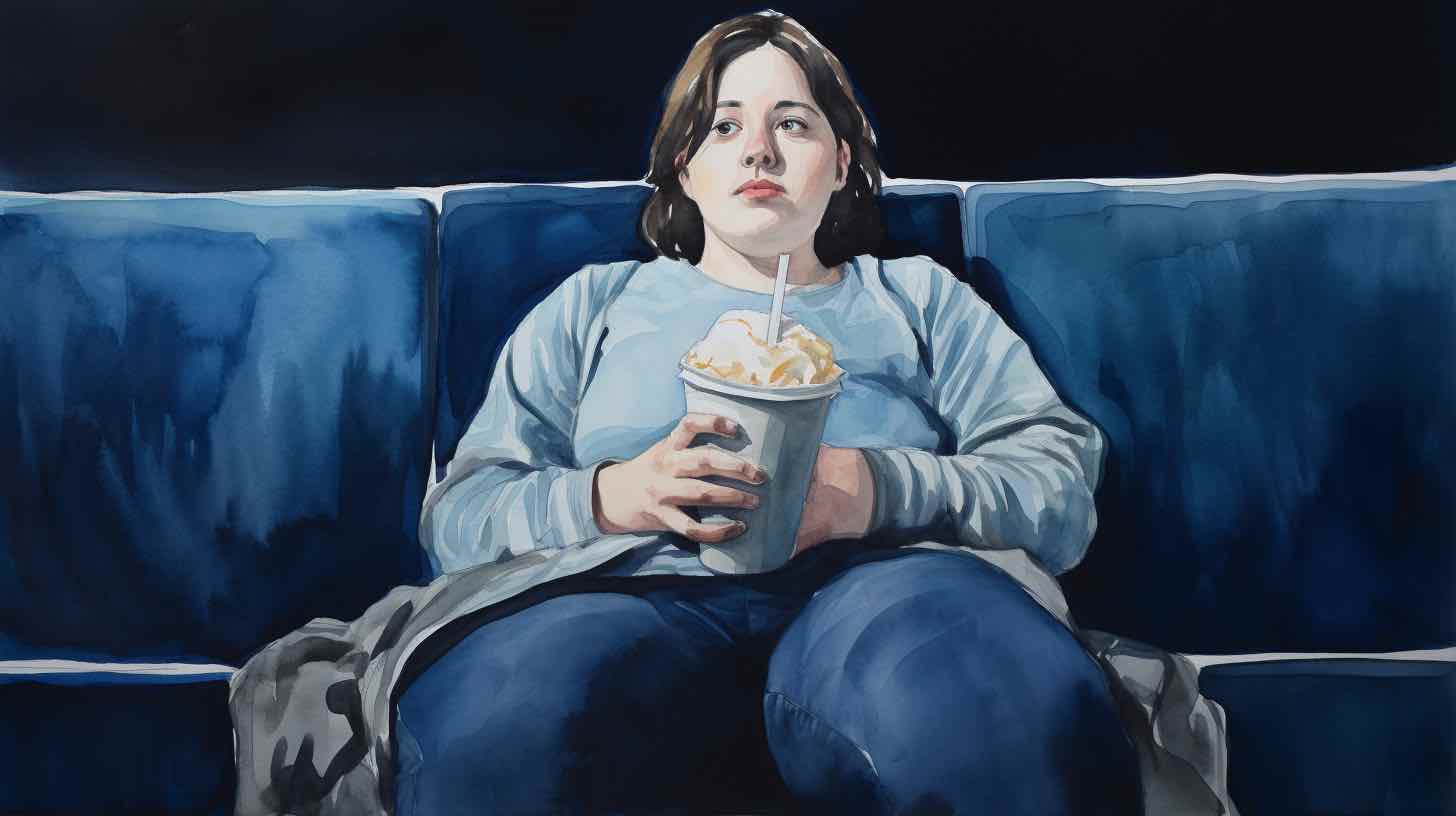There are several films and TV shows that portray characters with obsessive-compulsive disorder (OCD). Some of these include:
- As Good as It Gets (1997) – In this film, the character Melvin Udall (played by Jack Nicholson) exhibits severe OCD through his repetitive and rigid behaviors, such as having to touch the door handle a certain number of times before leaving his apartment, avoiding cracks on the sidewalk, and having to eat at the same restaurant every day. He also has germaphobia and is shown obsessively washing his hands.
What we think:
While the film does touch on some common OCD symptoms, such as repetitive behaviors and intrusive thoughts, it also exaggerates and stereotypes these symptoms for comedic effect. This can lead to misunderstandings about the condition and the people who experience it.
Grade: C+ - Monstress (2000) – In this TV show, the character Dr. Craig Watts has OCD, which is depicted through his repetitive and intrusive thoughts about symmetry, order, and cleanliness. He is also shown arranging and rearranging objects, such as books and papers, until they are perfectly aligned.
What we think:
The representation of OCD in this TV show is somewhat stereotypical, with the character Dr. Craig Watts exhibiting exaggerated symptoms and behaviors. However, the show does provide some insight into the types of intrusive thoughts and compulsive behaviors that can be associated with OCD.
Grade: B- - United States of Tara (2009-2011) – In this show, the character Tara Gregson (played by Toni Collette) has dissociative identity disorder and also exhibits symptoms of OCD, such as repetitive behaviors, intrusive thoughts, and a need for symmetry and order. She is shown repeatedly checking locks, counting objects, and washing her hands excessively.
What we think:
This TV show provides a more nuanced and accurate representation of OCD, as the character Tara Gregson’s symptoms are depicted as part of a larger picture of her dissociative identity disorder. The show also touches on the impact that OCD can have on the daily life of an individual and those around them.
Grade: B+ - Silver Linings Playbook (2012) – In this film, the character Pat Solitano (played by Bradley Cooper) has OCD and bipolar disorder. His OCD is depicted through his repetitive behaviors, such as counting and touching objects in a certain order, as well as his intrusive thoughts about symmetry and order. He is also shown compulsively checking locks and washing his hands.
What we think:
The film touches on some common OCD symptoms, such as repetitive behaviors and intrusive thoughts, but also exaggerates and stereotypes these symptoms for dramatic effect. While the portrayal of the character Pat Solitano is intended to be relatable, it can also perpetuate misunderstandings about the condition.
Grade: C
It’s important to note that not all depictions of OCD in these films and TV shows are entirely accurate or representative of the experiences of people with the disorder. Some of these portrayals can perpetuate stereotypes and misunderstandings about OCD.
It’s always a good idea to consult with a mental health professional for a more accurate understanding of the condition.
What can I do if people don’t understand what OCD truly is?
If you’re struggling with people who don’t understand OCD or make fun of it, here are some tips that may help:
- Educate them: Consider using the opportunity to educate others about OCD and what it’s really like to live with the condition. Provide information about the symptoms, causes, and treatments for OCD, and share your personal experience.
- Stand up for yourself: If someone is mocking or making fun of your OCD, it’s okay to stand up for yourself. You can assertively but respectfully let them know that their behavior is not okay and that you don’t appreciate it.
- Set boundaries: It’s important to set boundaries and protect your own mental health. If someone’s behavior is causing you distress, consider limiting your contact with them or avoiding them altogether.
- Seek support: If you’re struggling with feelings of anger, frustration, or sadness as a result of others’ negative attitudes, consider seeking support from friends, family, or a mental health professional.
- Focus on self-care: Taking care of yourself and practicing self-care is important for managing the symptoms of OCD and maintaining overall mental health. This can include activities like exercise, mindfulness, and seeking professional support.
Remember, it’s not your responsibility to change others’ attitudes or behavior, but it’s important to prioritize your own mental health and well-being. If someone is making fun of or mocking your OCD, it’s not a reflection of your worth or the validity of your experiences, and it’s okay to seek support and take care of yourself.
